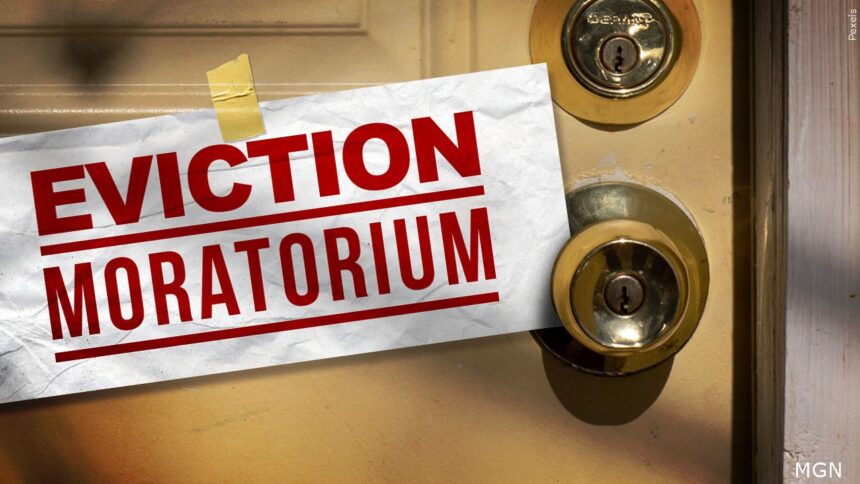
The federal moratorium was implemented by the Centers for Disease Control and Prevention in September of 2020. Overall, the moratorium greatly reduced the number of new eviction filings, despite some courts having enforced the ban more stringently than others. Given this arrangement, the end of the moratorium in August was widely predicted to prompt hundreds of thousands of evictions – but such a mass eviction has not yet materialized.
Instead, a modest uptick in evictions has taken its place. While some argue that the risk of a mass eviction was dramatized, others believe that these numbers point to how effective the remaining city and state renters protections really are. According to the Eviction Lab, a Princeton University research initiative, although eviction filings in court were up 8.7% in September from August, the rate is still low on a historic basis; furthermore, the Lab notes that at 36,796 filings, the number is roughly half the average September rate pre-pandemic.
So why did a mass eviction really not occur?
For one, as mentioned prior, various existing rental-assistance programs have streamlined their distribution methods and “are eager to get the funds out,” according to National Multifamily Housing Council president, Doug Bibby. Another reason is that about half of all renters nationwide did not feel the impact of the ban’s end because they lived in areas that still had eviction bans, or other pandemic-related eviction protections, in place according to the Urban Institute.
Other reasons are more area-specific – especially when looking at local governments that have made procedural changes to limit eviction filings. Philadelphia, for example, now requires landlords to go through both out-of-court mediation and the rental assistance application process before they can file for an eviction; according to recent statistics, this assistance program has received about 65,000 applications just this year. Philadelphia is also one of several other cities that have planned to guarantee, or already implemented, the right to legal counsel for tenants; in Philadelphia, this has led to new eviction cases being 71% below their pre-pandemic average in September. Another area-specific phenomenon has occurred in Virginia – where the state legislature extended tenants’ window to pay missed rent before landlords can file for eviction last year. The new rule, which gives tenants 14 days instead of 5, will stay in effect until at least next June; according to Central Virginia Legal Aid Society director of litigation, Marty Wegbreit, “for renters who are employed, that extension gives many a full pay period to settle their debt and avoid a court summons.”
So could a mass eviction still arise?
Despite all of these seemingly positive trends, the likelihood of a mass eviction event taking place in the near future is only rising with each passing month. Eviction rates, though low right now, could very well accelerate. Courts, that were virtually non-operational due to consistent pandemic shutdowns, are now slowly but surely hearing a backlog of cases filed earlier in the pandemic. Rental assistance, though technically available, has been “moving too slowly and is inadequate in some places,” according to former U.S. Treasury official and president and chief executive of the National Housing Conference, David Dworkin. On top of this, low eviction numbers technically do not encompass those evictions that were filed during the pandemic but are only being executed now. Lastly, contrary to the aforementioned trends, evictions haven’t slowed at all in some areas; in Jacksonville and Houston, for example, eviction rates have run much closer to their historical levels last month.
Aside from the above, the biggest threat is really just how high rents have gotten. According to RealPage data, rents rose 10.3% annually in professionally managed apartments in the third quarter of 2021 as vacancy rates plunged below 3% for the first time in three decades. The data also showed that adjusted rents rose by $150 from the start of the pandemic to $1,580.
What has arisen is a major power inequality. While landlords have been declining to extend leases while also raising rents to unaffordable levels, tenants have been left with little support as their last remaining tool – emergency rental assistance – is becoming ineffective in the face of such unattainable prices. For reference, only about 20% of $46.5 billion in available federal rent aid has been approved or paid to landlords and tenants. This situation, though unfortunate, did not come out of thin air. Landlords, too, were suffering during the pandemic but, now that the market is catching up to reflect the shortage of supply, they have been able to push the affordable housing shortage into overdrive. While some tenants are being displaced as landlords rush to sell buildings, others are having to compete for the last affordable unit available – all of which have little-to-no pandemic protection or assistance available. And with such an emotional and intense situation at hand, the repercussions of a mass eviction would be far-reaching.
Founded by attorneys Andreas Koutsoudakis and Michael Iakovou, KI Legal focuses on guiding companies and businesses throughout the entire legal spectrum as it relates to their business including day-to-day operations and compliance, litigation and transactional matters.
Connect with Andreas Koutsoudakis on LinkedIn.
Connect with Michael Iakovou on LinkedIn.
This information is the most up to date news available as of the date posted. Please be advised that any information posted on the KI Legal Blog or Social Channels is being supplied for informational purposes only and is subject to change at any time. For more information, and clarity surrounding your individual organization or current situation, contact a member of the KI Legal team, or fill out a new client intake form.
The post Moratorium End did Not Spur Mass Evictions – but Rising Prices Might Soon appeared first on KI Legal.
